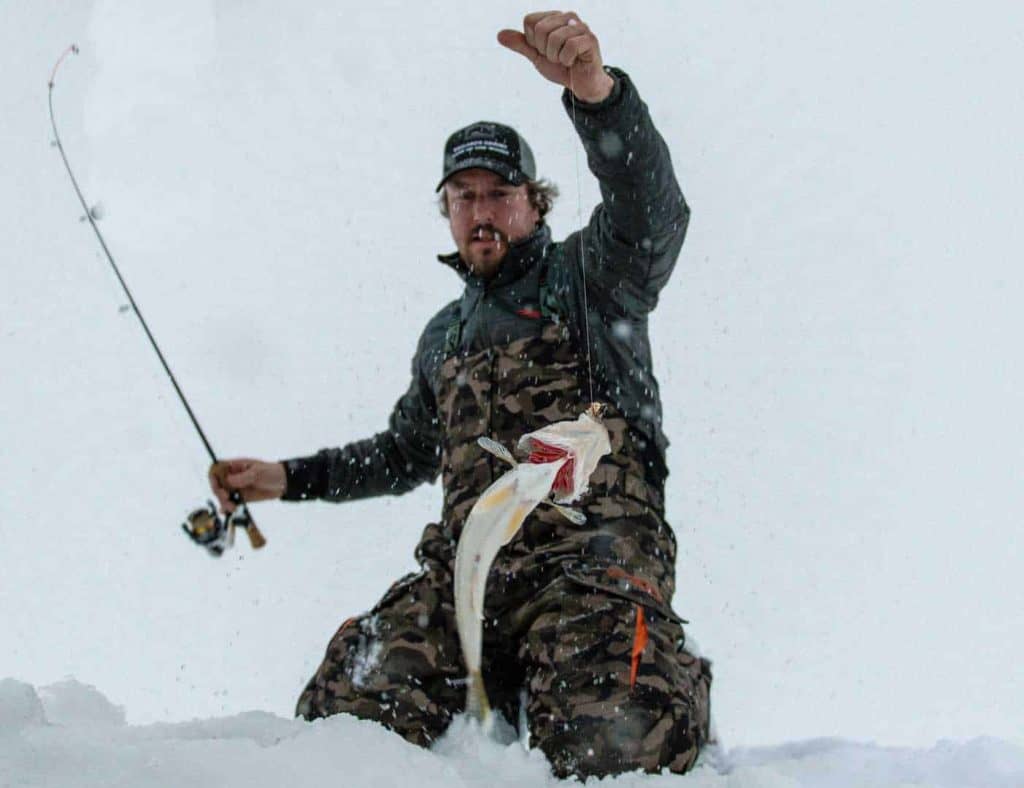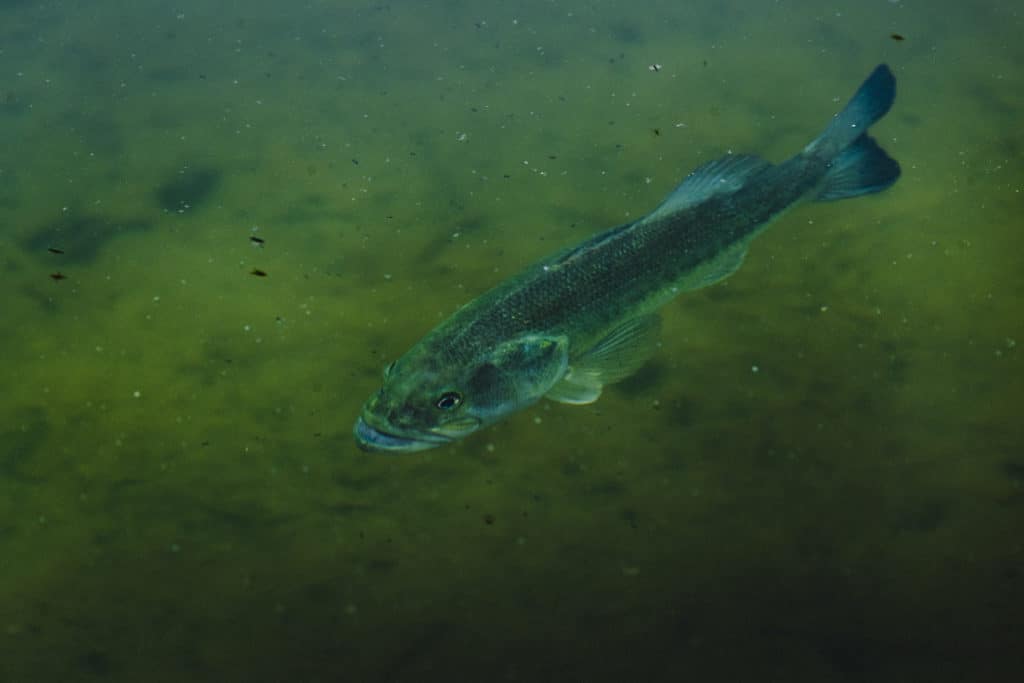Here Are Winter Bass Fishing Tips To Help You Land More Bass This Winter
Bass fishing in itself is already a challenge, and when you throw cold temperatures into the mix, you’ve got yourself an even bigger hurdle to get over. The climate and icy waters might make the fish frosty and sluggish, which makes it even more crucial to make sure you’re at the top of your game. It’s easy to get careless when the conditions aren’t perfect, but that’s precisely the time your nature as an angler will shine through.

If you want to improve your angling game during the cooler months of the year, read on for some winter bass fishing mistakes that are easy to avoid.
Winter Bass Fishing Tips
Retrieving too fast
When it comes to winter bass fishing, slow and steady wins the race. The fish are lethargic and sluggish and so the speed of your retrieve should be unrushed as well. During the winter when the bites are less frequent, it’s easy to lull into monotony in-between bites. When the dullness is suddenly broken with a hit, it’s easy to be taken away by the adrenalin rush, quickening all of your movements. Remember to be patient and move with purpose. Move slower than what your instinct is telling you to do. Refrain from hastening your retrieve and letting yourself get carried away.
Not casting enough
Even when the weather feels warmer than the usual biting winter chill, it may still be icy cold underneath the water. Bass are cold-blooded and it will take them more time to warm up compared to us, as they are constantly trying to preserve their energy. Their slower reaction times mean you have to adjust your casting as well because it will take them a long time to get to the target area. Make sure that you over-saturate casting into a single area before moving on. Refrain from moving to a different area if there are no hits.
Plopping
During the winter, the waters are less populated and give the bass a clearer line of sight to your presentation. Bass fishing in cooler waters requires extra care in avoiding the “plop”, or the sound of a lure carelessly breaking the water. Always treat casting as a delicate art form, making gentle and accurate casts, even if you’re starting to get impatient. Some anglers even practice their casting in a swimming pool or cooler to perfect their technique. Presentation is not just about your bait and lure’s appearance in the water, but how they break the surface is just as crucial.
How To Fish For Bass In Winter
Staying in the shade
Where to bass fish in the winter? Pay attention to your fishing environment and how the sun moves. Bass will most likely be more active in areas that are receiving a generous amount of sunlight. If you start fishing in a sunny area, observe when the sky begins to get overcast or if your target area suddenly becomes shaded. When that happens, adjust yourself to where the sun is shining. Stay in unproductive waters will just waste precious time.
Dull Hooks
While you’re waiting for the weather to even out or if you just need to keep your hands busy to fight cabin fever, you should sharpen your hooks. Even the most pricey and luxurious treble hooks become dull. Just like any sharp-edged instrument, they will need to be sharpened more frequently during the cold temperatures, especially when you’re casting in rocky structures. Don’t forget that the skin on the bass’s mouth is thicker in the winter, so keeping those hooks extra sharp is important to get them to penetrate efficiently.

What's The Best Bait For Bass Fishing In Winter?
Doubting Your Baits and Lures
Since the fish are biting less in the winter, there will be unprecedented downtime in-between bites, and when combined with the serene winter silence, you’ve got the perfect recipe for an overthinking mind. Crankbaits come in all assortments of colors, but brighter is not always better, especially during winter. Muted colors offer a more natural presentation to the bass, and may have higher chances of eliciting a reaction. If your current tackle has a good history of success, don’t be so quick to doubt your angling arsenal just because nothing is biting. Refrain from changing your lures too frequently and stick with your winter confidence baits and colors, such as the classic chartreuse in turbid waters and shad in clearer waters.
Neglecting The Line
There’s no sense in spending on premium fiberglass or graphite rod, and then neglecting to pay attention to the line you’re using. The type of line and diameter you equip has an enormous impact on the performance of your presentation. Some seasoned bass anglers even bring a full range of line types and diameters with them when casting out so they can adjust on the fly.
Choosing a smaller diameter line increases your sensitivity to the very light and subtle bites that may occur during the colder months. Using fluorocarbon increases sensitivity and helps your crankbaits sink lower to where the bass are hiding. This will be essential to success since you need to feel every single movement on your bait, even if it’s a false hit, and having the right line can get your bait at the depth you need it to get the fish to react.
Can You Catch Bass In The Winter?
You Should Always Be Learning
Can you catch bass in the winter? The short answer is, yes. However, some anglers are content to have just hooked something during the winter. A seasoned and serious angler will want to ask questions to help them understand the patterns of the area they are fishing in.
Keeping a journal of details such as locations, dates, times, lures, and baits used, can help the avid sportsman establish their angling habitat’s personality. However, you should also refrain from relying too much on your notes or history in the area. Remember to always fish the current conditions and adapt.

